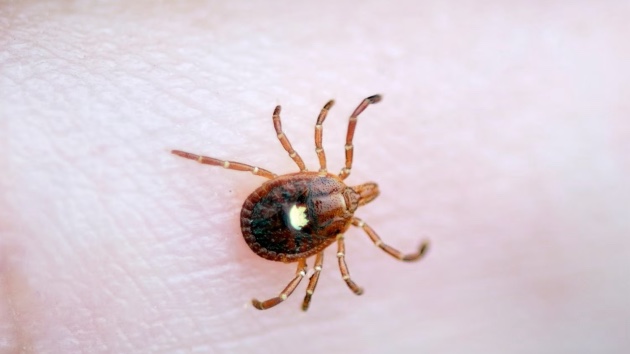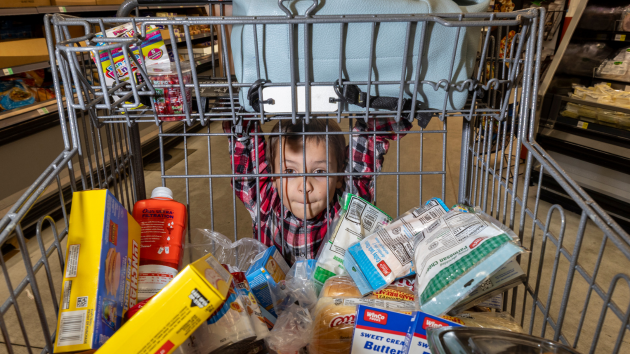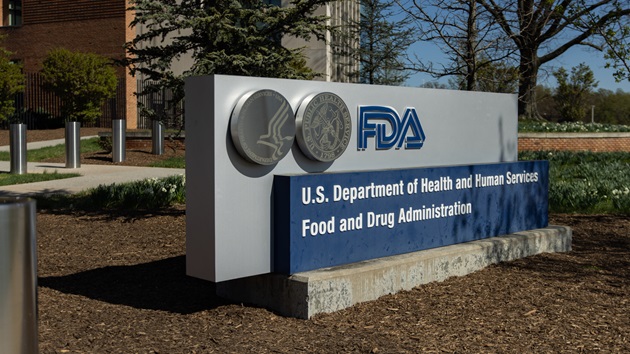Why we’re seeing shortages of children’s over-the-counter medicine
Written by ABC Audio ALL RIGHTS RESERVED on December 27, 2022

(NEW YORK) — Over the past few weeks, reports have emerged of sporadic shortages of over-the-counter children’s medications including Children’s Tylenol, Motrin and ibuprofen in some locations.
It comes amid a respiratory virus season that started earlier than usual with the highest number of flu and RSV cases seen in years.
Experts said that due to an earlier and unprecedented demand of certain medications, some stores may have little to no supply of these products.
However, manufacturers told ABC News they are working to produce the drugs and get them on shelves as quickly as possible.
Here’s what we know about the drug shortage and what you can do if you come across empty shelves:
What’s the situation?
An early start to the respiratory illness season has led to a rush in Americans buying over-the-counter pain relievers and fever reducers, with sales up 65% this November compared to last year, Consumer Healthcare Products Association spokesperson Anita Brikman told ABC News.
“Every year, we have a flu season that hits in the fall,” Dr. Stephen Schondelmeyer, professor of pharmaceutical care and health systems at the University of Minnesota, told ABC News. “This year, though, the flu season — depending on which part of the country you’re in — hit four to eight weeks early and not only did it start early, but the flu season had several different respiratory illnesses that a person could have caught all at the same time.”
“So, they may have gotten the flu, they may have gotten respiratory syncytial virus, which is RSV. COVID is still out there and there are a couple of flu-like conditions that people could get,” Schondelmeyer continued. “So, we kind of had this perfect storm of respiratory conditions hitting earlier than typically would have occurred.”
Flu has been a particular challenge this year with the U.S. seeing the highest number of cases at this point in the season at least 10 years, according to data from the Centers for Disease Control and Prevention. What’s more, children aged 4 and younger have the second-highest weekly hospitalization rate after those aged 65 and older.
Additionally, although cases of RSV are currently trending downward, they hit a two-year-high in early November, according to data from the CDC.
Meanwhile, weekly COVID-19 cases have also increased over the last four weeks from 307,201 to 455,466, and children aged 4 and younger have the highest case rate among all children under age 18, according to the CDC.
A combination of these illnesses has led to some places reporting supply shortages across the U.S., although these vary by state and even by city.
Experts said because supply is refreshed at stores at different times, customers may see stocked shelves at various times of day depending on the store.
Purchases some children medications being limited
While there are supply issues due to the unprecedented demand, manufacturers and pharmacies said there is no national shortage of pediatric cold and flu medications in the U.S.
National chains — including CVS and Walgreens — have each said they will be limiting purchases of ibuprofen and acetaminophen due to high demand.
At CVS, purchases will be limited to two per customer and online at Walgreens, purchases will be limited to six per customer, although there will be no limit in store, the chains told ABC News.
Schondelmeyer said, currently, there’s not a production issue at factories or a lack of ingredients to make the mediations, but rather because the respiratory season started so earlier, stores and manufacturers haven’t had a chance to catch up.
“It’s sort of like if you’re running a race, but you find out that everybody else started an hour before you did,” he said. “So that’s what happened here. We’re still running the race, but the flu season started before the medicines did.”
Erin Fox, senior pharmacy director at University of Utah Health, agrees and speculates companies typically make products based on last year’s sales with some room for an increase over the previous year.
“Clearly, nobody was ready for a huge spike in need for these medications,” Fox, who studies drug shortages, told ABC News. “We know manufacturers are ramping up supply, but these are low-cost meds. There isn’t a stockpile or extra manufactured to be ready ‘just in case.'”
Rite Aid told ABC News it is experiencing high demand but will not be implementing purchase limits at this time.
What you can do
Brikman told ABC News that Americans should try to avoid stockpiling, which only worsens the problem and can lead to less access and price gouging for other families.
Therefore, parents should buy only what they need, especially because the supply is expected to match demand in a few weeks.
“We’ve been in touch with all the three major manufacturers of these products — they’ve confirmed they’re running their factories, their manufacturing facilities 24/7 and trying to just meet the demand,” Brikman said. “But we also understand that there have been intermittent out of stocks. Given this demand, we understand why retailers may have put some of these limits in place to try and prevent stocking up, which could mean another family can’t find the medicine as easily.”
If someone wants to buy these children’s medications, Brikman continued, “So we’re trying to get out the message, please, when you find this, purchase what you need for your family, but avoid the temptation to stock up because that may affect the next person who walks in the store.
She added it is the hope in the next few weeks that the supply will meet the demand and pharmacies will reach their normal availability of medications.
Schondelmeyer also warned that even if parents cannot find children’s medication, they should not give them adult medication because medicine for children is dosed based on weight and age. Giving them adult doses can have serious consequences.
“Parents should be cautious and don’t give your child a full adult dose because that could be harmful to them,” he said. “Do not use aspirin. If you find that the shelves are empty at the pharmacy, ask your pharmacist what alternatives are there or consider looking at other pharmacies as well, and the pharmacist can advise you on what the appropriate dose is for a child.”
He also said parents don’t need to give their kids fever-reducing medication unless the fever is persistent. If the medication is needed, Schondelmeyer suggests parents not just stick to brand names but also look for generic options.
“There are generic versions of these medicines that are the same medicine, that are just as safe, that work just as well,” he said. “And so, don’t hesitate to ask your pharmacist, ‘Is there a generic available?'”
Experts also say a compounded version of these drugs may be an option for some people who can’t go without them. Some pharmacies, called compounding pharmacies, can take one version of a drug, like a powder, and mix it into another version, such as a liquid medication. But any compounded drug needs a prescription because it is not FDA-approved.
“It’s not common to see [ibuprofen or acetaminophen] compounded. But it’s not very difficult to do,” Gus Bassani, chief scientific officer at the Professional Compounding Centers of America told ABC News.
ABC News’ Eric Strauss, Sasha Pezenik, Youri Benadjaoud and Nicole Westman contributed to this report.
Copyright © 2022, ABC Audio. All rights reserved.

 KVSP
KVSP 




